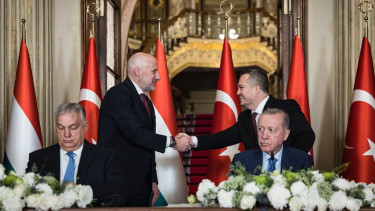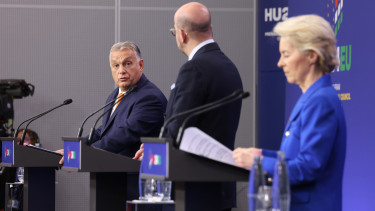Business
EU Court rules against Hungary in Unibet gambling case
Save article
Share
The legislation limited, first, in a discriminatory manner, and, second, by reason of its non-transparent nature, the opportunity for operators established in other Member States to organize such games in Hungary, the court ruled in a case filed by Unibet International Ltd against Hungarian tax authority NAV.
Unibet International is a company established in Malta whose business consists in particular in the organization of online games of chance and which, to that end, holds licenses issued by several Member States.
In 2014, the Hungarian authorities established that Unibet was providing, on Hungarian-language internet sites, services relating to games of chance even though it did not hold the license required in Hungary to carry on such an activity. Subsequently, those authorities first ordered on June 25, 2014 that access be temporarily blocked from Hungary to Unibet’s internet sites and, on August 29, 2014, imposed a fine on the company.
By its judgment delivered today, the Court of Justice states first of all that the national legislation at issue, which prohibits the organization of games of chance without prior licensing by the administrative authorities, constitutes a restriction of the principle of the freedom to provide services.
The Court then goes on to point out that, according to the national legislation on the basis of which the decision of June 2014 was adopted, operators of games of chance were required, in order to be deemed ‘trustworthy’, to demonstrate that they had, for a period of at least 10 years, carried out an activity involving the organization of games of chance in Hungary. The Court considers that such a requirement constitutes a difference in treatment because it places at a disadvantage operators of games of chance established in other Member States in comparison with national operators, who may more easily meet that condition. For that reason, the Court ruled that the legislation being challenged is discriminatory and, therefore, contrary to the principle of the freedom to provide services.
With regard to the national legislation on the basis of which the decision of August 2014 was adopted, the Court finds that the legislation does not satisfy the requirement of transparency in so far as neither the conditions governing the exercise by the national authorities of their powers during the procedures for awarding concessions to ‘trustworthy’ operators of game of chance nor the technical conditions which operators must satisfy when submitting their tenders had been defined with sufficient precision.
In those circumstances, the Court of Justice concludes that the principle of the freedom to provide services also precludes that legislation.
Finally, the Court of Justice states that no penalties may be imposed on the basis of rules held to be contrary to the principle referred to above.
Unibet International is a company established in Malta whose business consists in particular in the organization of online games of chance and which, to that end, holds licenses issued by several Member States.
In 2014, the Hungarian authorities established that Unibet was providing, on Hungarian-language internet sites, services relating to games of chance even though it did not hold the license required in Hungary to carry on such an activity. Subsequently, those authorities first ordered on June 25, 2014 that access be temporarily blocked from Hungary to Unibet’s internet sites and, on August 29, 2014, imposed a fine on the company.
By its judgment delivered today, the Court of Justice states first of all that the national legislation at issue, which prohibits the organization of games of chance without prior licensing by the administrative authorities, constitutes a restriction of the principle of the freedom to provide services.
The Court then goes on to point out that, according to the national legislation on the basis of which the decision of June 2014 was adopted, operators of games of chance were required, in order to be deemed ‘trustworthy’, to demonstrate that they had, for a period of at least 10 years, carried out an activity involving the organization of games of chance in Hungary. The Court considers that such a requirement constitutes a difference in treatment because it places at a disadvantage operators of games of chance established in other Member States in comparison with national operators, who may more easily meet that condition. For that reason, the Court ruled that the legislation being challenged is discriminatory and, therefore, contrary to the principle of the freedom to provide services.
With regard to the national legislation on the basis of which the decision of August 2014 was adopted, the Court finds that the legislation does not satisfy the requirement of transparency in so far as neither the conditions governing the exercise by the national authorities of their powers during the procedures for awarding concessions to ‘trustworthy’ operators of game of chance nor the technical conditions which operators must satisfy when submitting their tenders had been defined with sufficient precision.
In those circumstances, the Court of Justice concludes that the principle of the freedom to provide services also precludes that legislation.
Finally, the Court of Justice states that no penalties may be imposed on the basis of rules held to be contrary to the principle referred to above.







